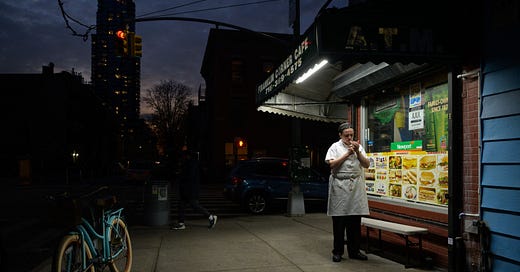‘It Has To Change’: Small Business Owners Sound Off On Crushing Inflation

Brooklyn, N.Y. (Ed Jones/AFP via Getty Images)
They survived the pandemic lockdowns. But the owners of gas stations, hardware stores and restaurants aren’t sure they'll survive this.
488
Like pretty much everyone except the White House press secretary, I’m aware that inflation is a huge problem affecting countless Americans.
But I wanted to know what it felt like to be a small-business owner who is feeling the squeeze. On one side, with distributors charging them more for the same stuff. And on the other side, with customers angry about …
Enjoying the story?
Enter your email to read this article and receive our daily newsletter.
Already have an account?
Sign In




